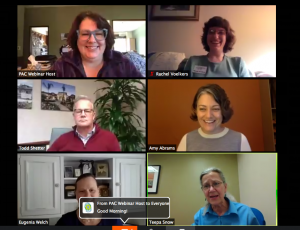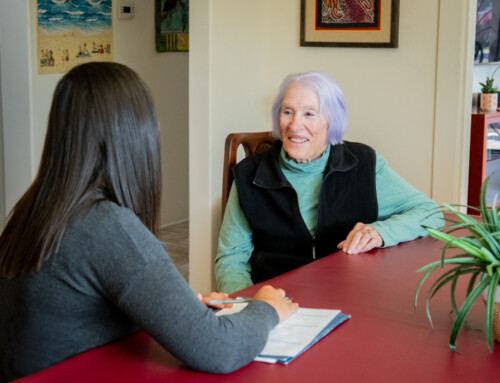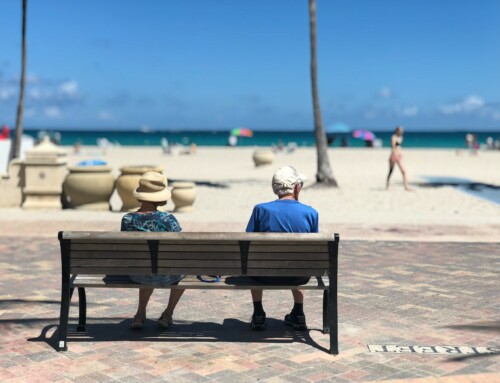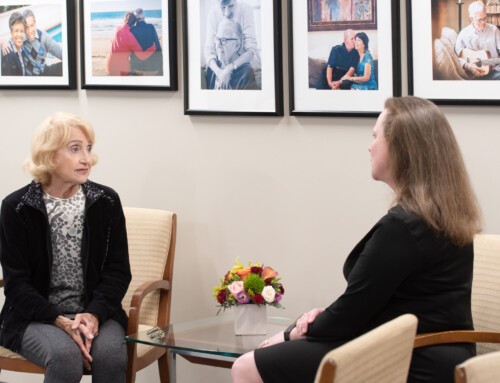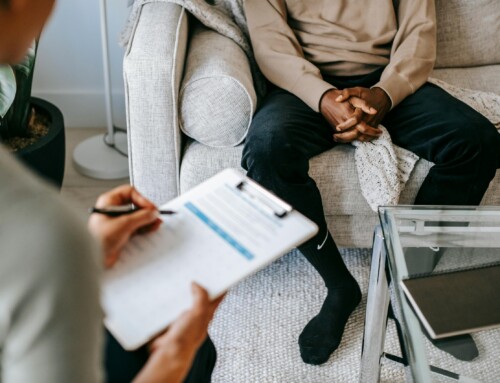The month of May began with a special opportunity to learn from renowned dementia educator Teepa Snow during Talk with Teepa: Caregiving, Compassion, and COVID-19. The webinar was presented in partnership with ActivCare Living and Alzheimer’s San Diego. The engaging Q&A format highlighted Teepa’s Positive Approach® to Care (PAC) – and the extra complication of caregiving during a pandemic.
What makes Teepa’s PAC method so special is the idea that care partners focus on the skills the person living with dementia still has versus what they have lost, and that they consider how things must feel from their person’s point of view. However, Teepa also recognized that this is easier said than done, especially as COVID-19 has taken a lot of resources away from caregivers and forced many people to isolate themselves in their homes.
“Building and sustaining relationships during social distancing is critical,” Teepa shared. “Many health officials have forgotten about people living with dementia when giving COVID-19 guidelines. It’s important to think creatively and not shut people in small rooms 24/7.”
RELATED | San Diego food delivery, transportation resources, closures & other vital services
One challenge Teepa addressed is how to convince or explain to your person why they should wear a mask – whether that’s when venturing out in the community to essential appointments, or if they’re living in a memory care facility.
“If you go into the detailed explanation that coronavirus is dangerous and therefore you need to wear the mask, people with dementia might not understand and perceive the mask itself as dangerous,” she explained. Instead, Teepa suggested the caregiver slowly introduce the idea by putting the mask on themselves – alternating taking it on and off to demonstrate how they might look and sound very different while wearing it. While it might be difficult to get your person to ultimately wear the mask, this can at least ease their anxiety when seeing you or others wearing them in public places.
Teepa also shared ideas for making video calls meaningful. She demonstrated how you can try sorting interesting objects found around the house together or even turn the wall behind you into a scavenger hunt by hanging printed pictures of different world landmarks. Dementia narrows the field of vision for a person, so taking advantage of the limited space in the background and calling attention to photos of a shared memory could be an engaging reminiscence activity.
RELATED | 9 Cognitively-stimulating activities
When it comes to wandering and restlessness, Teepa encourages care partners to find ways to get their person moving.
“The hippocampus is designed to learn and remember to go from here to there and then come back. We are meant to be an RV, not a house,” she said. “When someone with dementia says they’re not okay in one space…that means they feel at risk or unsafe. Try to acknowledge that.”
One strategy is to take the person by the hand and move through some doorways together. Something about that divide in space can make the person living with dementia think they are entering a whole new place without actually going somewhere that is unsafe.
“By evaluating the new environment, the brain often will calm itself,” Teepa added.
Teepa emphasized that one of the scariest places for someone with dementia right now is a hospital. If your person does have to be admitted for coronavirus or other health issues, there are a few ways to make that experience as positive as possible.
First, Teepa suggested giving healthcare workers a specific list of both triggers and calming behaviors. For instance: “My dad prefers to sleep on his right-hand side towards the doorway because he likes to see people coming before they interact.” She also said care partners should try and work with the hospital to sanitize and bring in a few objects that are comforting to them. While dementia is a bit of mystery to many people in healthcare, most hospital workers should be able to accommodate these small but impactful requests.
RELATED | Local COVID-19 updates
Teepa acknowledged that care partners are under more stress now than ever before.
“Not only are you an office, but you are also a school, a day program, et cetera,” she said. She also emphasized the importance of compassion and empathy.
“About half of people living with dementia don’t recognize they have the disease and are changing. So care partners need to let go of the idea they can understand what is happening,” Teepa explained. “We can get in the trap of thinking people with dementia can see themself clearly in a mirror of self-awareness. But it’s important to remember they are not operating from a mindset of denial, but of brain failure.”
She added that the medical term for this loss of insight is called “anosognosia” – and care partners shouldn’t take it personally.
RELATED | Sign up to receive Teepa’s free Online Dementia Journal
Finally, Teepa reminded the audience that soap and warm water are powerful weapons against COVID-19 and that with proper caution, the risk of getting sick can be reduced to a reasonable level.
“There is danger in isolation…it lowers immune response. Until there’s a cure for COVID-19, give care with care,” she said. “People living with dementia don’t deserve to die alone. We need to be careful…but also thoughtful and kind.”
Are you caring for someone with dementia? Do you need some support? Give us a call at 858.492.4400 to speak with one of our dementia experts. We’re here to help!
